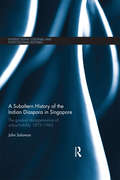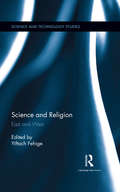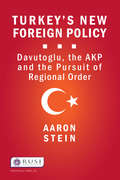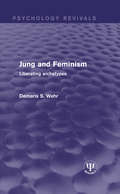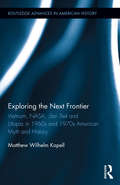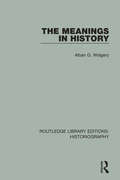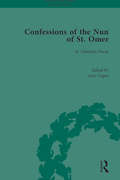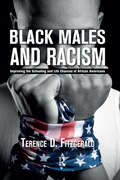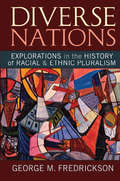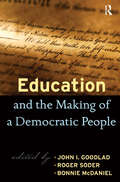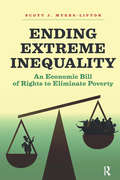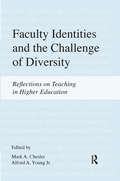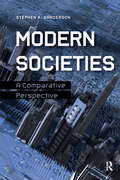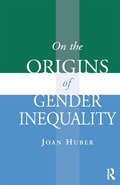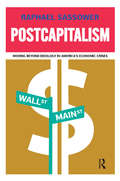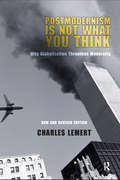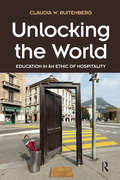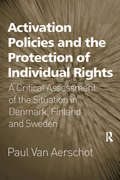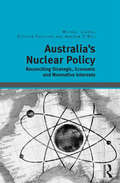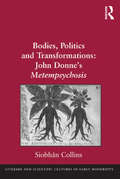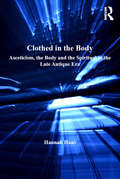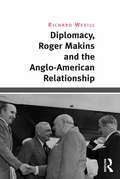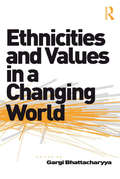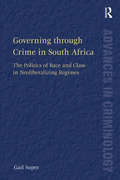Special Collections
Benetech’s Global Certified Accessible Titles
Description: Benetech’s GCA program is the first independent third-party EPUB certification to verify ebook accessibility. By creating content that is born accessible, publishers can meet the needs of all readers. Learn more: https://bornaccessible.benetech.org/
- Table View
- List View
A Subaltern History of the Indian Diaspora in Singapore
by John SolomonUntouchable migrants made up a substantial proportion of Indian labour migration into Singapore in the nineteenth and twentieth centuries. During this period, they were subject to forms of caste prejudice and discrimination that powerfully reinforced their identities as untouchables overseas. Today, however, untouchability has disappeared from the public sphere and has been replaced by other notions of identity, leaving unanswered questions as to how and when this occurred. The untouchable migrant is also largely absent from popular narratives of the past. This book takes the "disappearance" as a starting point to examine a history of untouchable migration amongst Indians who arrived in Singapore from its modern founding as a British colony in the early nineteenth century through to its independence in 1965. Using oral history records, archival sources, colonial ethnography, newspapers and interviews, this book examines the lives of untouchable migrants through their everyday experience in an overseas multi-ethnic environment. It examines how these migrants who in many ways occupied the bottom rungs of their communities and colonial society, framed transnational issues of identity and social justice in relation to their experiences within the broader Indian diaspora in Singapore. The book trances the manner in which untouchable identities evolved and then receded in response to the dramatic social changes brought about by colonialism, war and post-colonial nationhood. By focusing on a subaltern group from the past, this study provides an alternative history of Indian migration to Singapore and a different perspective on the cultural conversations that have taken place between India and Singapore for much of the island's modern history.
Science and Religion
by Yiftach FehigeThis volume situates itself within the context of the rapidly growing interdisciplinary field that is dedicated to the study of the complex interactions between science and religion. It presents an innovative approach insofar as it addresses the Eurocentrism that is still prevalent in this field. At the same time it reveals how science develops in the space that emerges between the ‘local’ and the ‘global’. The volume examines a range of themes central to the interaction between science and religion: ‘Eastern’ thought within ‘Western’ science and religion and vice versa, and revisits thinkers who sought to integrate ‘Eastern’ and ‘Western’ thinking. It studies Zen Buddhism and its relation to psychotherapy, Islamic science, Vedantic science, atheism in India, and Darwinism, offering in turn new perspectives on a variety of approaches to nature. Part of the Science and Technology Studies series, this volume brings together original perspectives from major scholars from across disciplines and will be of great interest to scholars and students of science and technology studies, history of science, philosophy of science, religious studies, and sociology.
Turkey's New Foreign Policy
by Aaron SteinTurkey’s Justice and Development Party (AKP), after coming to power in 2002, sought to play a larger diplomatic role in the Middle East. The AKP adopted a proactive foreign policy to create ‘strategic depth’ by expanding Turkey’s zone of influence in the region, drawing on the opportunities of geography, economic power and imperial history to reconnect the country with its historical hinterland. Yet despite early promise, this policy came undone after the Arab upheavals of 2011 and has seen Turkey increasingly at odds with its neighbours and the West. Turkey's New Foreign Policy outlines the key tenets of the AKP’s policy of strategic depth in the Middle East and how this marks a departure from traditional Turkish foreign policy. Particular attention is focused on the Turkish reaction to the political changes that swept through the Arab world – including the Syrian civil war – and presented Turkey with its most significant foreign-policy challenge to date. Based on extensive primary research of Turkish-language sources, this monograph argues that political changes in the Middle East have precipitated a serious decline in Turkish regional influence, reversing earlier gains in influence after the AKP came to power. However, despite these foreign-policy defeats, the AKP has shown little indication that it is willing to scale back its ambitions, insisting that it stands on the right side of history – drawing a clear distinction between Turkey and the West.
Jung and Feminism
by Demaris S. WehrJung, in contrast to Freud, has typically been considered more sympathetic to women largely because of his emphasis on the feminine as a way of being in the world and on the ‘anima’, the unconscious feminine aspect of male personality. Feminists, however, have viewed Jung’s whole notion of the ‘feminine’ with suspicion, seeing it as a projection of male psyche and not an authentic understanding of female humanity. For Demaris Wehr both feminism and Jungian psychology have been guiding forces, and in this book, originally published in 1988, she mediates between feminists and classical Jungians – two groups historically at odds. She faces squarely the male-centred assumptions of some Jungian concepts and challenges Jung’s claims for the universality and purely empirical basis of his work, but nevertheless maintains an appreciation for the value of Jung’s understanding of human nature and the process of individuation. By bringing the insights of feminist theology to bear on the seemingly unbridgeable gap between analytical psychology and feminism, she succeeds in reclaiming Jungian psychology as a freeing therapy for women and reveals it as the ultimately liberating vision its founder intended it to be.
Exploring the Next Frontier
by Matthew Wilhelm KapellThe 1960s and early 70s saw the evolution of Frontier Myths even as scholars were renouncing the interpretive value of myths themselves. Works like Joe Haldeman’s The Forever War exemplified that rejection using his experiences during the Vietnam War to illustrate the problematic consequences of simple mythic idealism. Simultaneously, Americans were playing with expanded and revised versions of familiar Frontier Myths, though in a contemporary context, through NASA’s lunar missions, Star Trek, and Gerard K. O’Neill’s High Frontier. This book examines the reasons behind the exclusion of Frontier Myths to the periphery of scholarly discourse, and endeavors to build a new model for understanding their enduring significance. This model connects NASA’s failed attempts to recycle earlier myths, wholesale, to Star Trek’s revision of those myths and rejection of the idea of a frontier paradise, to O’Neill’s desire to realize such a paradise in Earth’s orbit. This new synthesis defies the negative connotations of Frontier Myths during the 1960s and 70s and attempts to resuscitate them for relevance in the modern academic context.
The Meanings in History
by Alban G. WidgeryIn this book, originally published in 1967, the author gives his views of history, from reflection on living history as distinct from books about past history. He sees histories as the related histories of individuals and gives an account of the meanings in those individuals’ lives and defends the beliefs dominatnly held in relation to them. He challenges professional historians to concern themselves with the fundamentals of history, and philosophers to return to the cnsideration of problems persistent in the previous history of philosophy, occidental and oriental.
Confessions of the Nun of St Omer
by Lucy CoganCharlotte Dacre’s debut novel Confessions of the Nun of St Omer (1805) was a bestseller in its day, launching the career of a woman who would go on to become one of the nineteenth century’s most notorious female novelists. The work tells the story of the wilful Cazire, who recounts her passionate and destructive youthful adventures from the convent where she now lives in seclusion. Although Dacre’s fame, then and now, rests largely on her sensationalist plots and portrayal of sexually self-possessed female villains, Confessions of the Nun of St. Omer shows a different side to her writing, one that is engaged in the political debate surrounding the French Revolution and eager to uphold the conservative moral line. Indeed, in many ways the novel strives to exemplify the moral and social orthodoxies of its time – dealing with themes of education, passion, seduction and the dangers of the radical ‘new philosophy’. Yet even at this early stage of her career the author’s frank exploration of the power of female desire reveals a willingness to experiment with themes left untouched by more conventional Romantic era novelists, themes that would dominate her writing for years to come. This edition of Charlotte Dacre’s book is based on the Chawton House Library copy of the text from 1805 and contains textual notes. The book will be of interest to those researching the Gothic, women’s writing and the development of the nineteenth-century novel.
Black Males and Racism
by Terence D. FitzgeraldBehind the twenty-first-century curtain of "colorblind" public sentiment lies an often-ignored reality shared by many African American males—racism continues to thrive and often drastically affects their lives. Fitzgerald draws on his extensive interviews of black males to reveal the experiences of racism that continue in public schools and in American higher education.Using empirical data and the methods of sociological research, Fitzgerald analyzes how the persistent effects of white supremacy in education have threatened the psychological and economic welfare of black males. The effects often last well into adulthood. Unraveling the subtle and overt mechanisms of institutional social control leads Fitzgerald to proposals to reduce structural racism and improve the lives of African American youth.
Diverse Nations
by George M. FredricksonOne of the world's leading historians of race relations, George Fredrickson in his newest book probes the history of racial and ethnic diversity in the United States and other parts of the world. Diverse Nations explores recent interpretations of slavery and race relations in the United States and introduces comparative perspectives on Europe, South Africa, and Brazil. Notably, the book features groundbreaking work comparing ethnoracial pluralism in France and the United States. In contrast to the similarities of race relations in the United States and South Africa, which both drew rigid domestic color lines, the United States and France have historically diverged greatly in their approaches to racial difference. Yet both are influenced by a common heritage of revolutionary republicanism, extensive immigration, and cultural pluralism. Fredrickson's rich comparisons provide stimulating new insights into the continuing impacts of slavery and beliefs about race upon our increasingly pluralistic societies.
Education and the Making of a Democratic People
by Bonnie Mcdaniel and John I. Goodlad and Roger SoderUnfortunately, civic values such as equity and justice that constitute the moral grounding of American democracy are losing their place in public affairs. The promise of this democracy is inclusive: no one is to be left out. Yet many people are. Education and the Making of a Democratic People regards the challenge of inclusiveness as a fundamental and non-negotiable educational agenda. America's public schools are a main public forum in which people can learn to preserve and actively protect our democratic process. The value of our schools as a democratic forum extends beyond the classroom to parents and other members of local communities. By engaging in conversations and actions that support the democratic purpose of schools, local communities can ensure that the United States will become a healthy, robust democracy that represents all of its citizens.
Ending Extreme Inequality
by Scott Myers-LiptonPoverty and inequality are at record levels. Today, forty-seven million Americans live in poverty, while the median is in decline. The top 20 percent now controls 89 percent of all wealth. These conditions have renewed demands for a new economic Bill of Rights, an idea proposed by F. D. Roosevelt, Truman and Martin Luther King, Jr. The new Economic Bill of Rights has a coherent plan and proclaims that all Americans have the right to a job, a living wage, a decent home, adequate medical care, good education, and adequate protection from economic fears of unemployment, sickness and old age. Integrating the latest economic and social data, Ending Extreme Inequality explores each of these rights. Each chapter includes: an analysis of the social problems surrounding each right; a historical overview of the attempts to right these wrongs; and assessments of current solutions offered by citizens, community groups and politicians. These contemporary, real-life solutions to inequality can inspire students and citizens to become involved and open pathways toward a more just society.
Faculty Identities and the Challenge of Diversity
by Mark A Chesler and Alford A Young JrThis book examines the undergraduate teaching experiences and collegial relationships of university faculty who hold appointments in social science, humanities, or natural science and engineering, and who have received undergraduate teaching or service-to-diversity nominations and awards. Documenting and interpreting faculty members' social identities and pedagogical practices, Faculty Identities and the Challenge of Diversity explores how professors address the diverse racial, ethnic, gender, and sexual identities of their students. By carefully considering how this unique group of faculty makes sense of their instruction and classrooms, this book provides practical advice that will prove beneficial to both experienced and new teachers looking to improve their practice in a changing educational landscape.
Modern Societies
by Stephen K. SandersonFirst Published in 2016. Routledge is an imprint of Taylor & Francis, an Informa company.
On the Origins of Gender Inequality
by Joan HuberIn our fast-paced world of technology and conveniences, the biological origins of women's inequality can be forgotten. This book offers a richer understanding of gender inequality by explaining a key cause-women's reproductive and lactation patterns. Until about 1900, infants nursed every fifteen minutes on average for two years because very frequent suckling prevented pregnancy. The practice evolved because it maximized infant survival. If a forager child was born before its older sibling could take part in the daily food search, the older one died. This practice persisted until the modern era because until after the discovery of the germ theory of disease, human milk was the only food certain to be unspoiled. Lactation patterns excluded women from the activities that led to political leadership. During the twentieth century the ancient mode declined and women entered the labor market en masse. Joan Huber challenges feminists toward a richer understanding of biological origins of inequality-knowledge that can help women achieve greater equality today.
Postcapitalism
by Raphael SassowerDebates over the role of government have intensified in the wake of America's deepest financial crisis since the Depression. This book suggests new ways of moving forward based on the policies and principles that have worked in the past. Sassower shows how American pragmatism has guided the more successful financial policies undertaken during the past century. This means that from the workplace to foreign aid, Americans benefit when they collaborate with each other rather than only pursue their self-interest in competitive ways. Drawing on thinkers from Adam Smith to Keynes to Bernanke, Sassower shows how a new era of postideological capitalism can emerge in the wake of the current economic crisis-renewing America's leadership for the future.
Postmodernism is Not What You Think
by Charles C. Lemert'Charles Lemert is one of the most thoughtful and interesting of sociology's postmodernists. He recurrently finds new angles of vision and is especially helpful for overcoming the pernicious opposition of 'micro' and 'macro' perspectives.' -Craig Calhoun, New York University (on the first edition) Highly readable, the second edition of Postmodernism Is Not What You Think responds to the widespread claim that postmodernism is over. It explains the historical connections between the postmodern and globalization. Those who wish to kill the term postmodernism still must face the facts that the former nationalistic world-system has collapsed and is slowly being replaced by a more global set of structures. The book is completely revised and updated with an entirely new section on globalization. The media and popular culture, identity politics, the science wars, politics and cultural studies, structuralism and poststructuralism, and the new sociologies are also put in perspective as signs of the new social formations dawning at the end of the modern age. Lemert shows that the postmodern is less a theory than a condition of social life brought about by the trouble modernity has gotten itself into.
Unlocking the World
by Claudia W. Ruitenberg"Unlocking the World "proposes hospitality as a guiding ethic for education. Based on the work of Jacques Derrida, it suggests that giving place to children and newcomers is at the heart of education. The primary responsibility of the host is not to assimilate newcomers into tradition but rather to create or leave a place where they may arrive. Hospitality as a guiding ethic for education is discussed in its many facets, including the decentered conception of subjectivity on which it relies, the way it casts the relation between teacher and student, and its conception of curriculum as an inheritance that asks for a critical reception. The book examines the relation between an ethic of hospitality and the educational contexts in which it would guide practice. Since these contexts are marked by gender, culture, and language, it asks how such differences affect enactments of hospitality. Since hospitality typically involves a power difference between host and guest, the book addresses how an ethic of hospitality accounts for power, whether it is appropriate for educational contexts marked by colonialism, and how it might guide education aimed at social justice."
What Successful Principals Do!
by Franzy FleckTake charge of your school today with What Successful Principals Do! In this friendly, energetic, and engaging book, Franzy Fleck draws on his experience as a principal to share dozens of practical strategies for running a successful school. Organized into manageable chapters, Fleck’s advice is both powerful and realistic. In this second edition, you’ll find 30 additional tips covering the most timely issues, as well as 13 bonus tips! You’ll learn how to: Effectively use social media Enhance relationships with students, parents, and staff Manage complex decision-making Develop HR and personnel leadership Deal with grief, trauma, and crisis
Activation Policies and the Protection of Individual Rights
by Paul Van AerschotIn Denmark, Finland and Sweden the evolution of administrative law, including social welfare law, has been marked by a shift towards a stronger protection of the recipient's individual rights. The adoption of activation policies targeting recipients of social assistance has highlighted the tensions between decision-making concerning the implementation of these policies and the legislative efforts to promote the realisation of individual rights in the field of social welfare. An examination of the legislation in question and its implementation conditions shows that the realisation of individual rights is subordinated to the pursuit of organisational and other objectives. The findings of the study are used to formulate proposals for the promotion of individual rights based on the Nordic egalitarian model of citizenship. This critical assessment of activation policies should be of broad international appeal. It will be of interest to researchers in social policy, as well as those concerned with protection of rights.
Australia's Nuclear Policy
by Michael Clarke and Stephan FrühlingAustralia’s Nuclear Policy: Reconciling Strategic, Economic and Normative Interests critically re-evaluates Australia’s engagement with nuclear weapons, nuclear power and the nuclear fuel cycle since the dawn of the nuclear age. The authors develop a holistic conception of ’nuclear policy’ that extends across the three distinct but related spheres - strategic, economic and normative - that have arisen from the basic ’dual-use’ dilemma of nuclear technology. Existing scholarship on Australia’s nuclear policy has generally grappled with each of these spheres in isolation. In a fresh evaluation of the field, the authors investigate the broader aims of Australian nuclear policy and detail how successive Australian governments have engaged with nuclear issues since 1945. Through its holistic approach, the book demonstrates the logic of seemingly conflicting policy positions at the heart of Australian nuclear policy, including simultaneous reliance on US extended deterrence and the pursuit of nuclear disarmament. Such apparent contradictions highlight the complex relationships between different ends and means of nuclear policy. How successive Australian governments of different political shades have attempted to reconcile these in their nuclear policy over time is a central part of the history and future of Australia’s engagement with the nuclear fuel cycle.
Bodies, Politics and Transformations: John Donne's Metempsychosis
by Siobhán CollinsSince the beginning of the twentieth century, critics have predominantly offered a negative estimate of John Donne’s Metempsychosis. In contrast, this study of Metempsychosis re-evaluates the poem as one of the most vital and energetic of Donne’s canon. Siobhán Collins appraises Metempsychosis for its extraordinary openness to and its inventive portrayal of conflict within identity. She situates this ludic verse as a text alert to and imbued with the Elizabethan fascination with the processes and properties of metamorphosis. Contesting the pervasive view that the poem is incomplete, this study illustrates how Metempsychosis is thematically linked with Donne’s other writings through its concern with the relationship between body and soul, and with temporality and transformation. Collins uses this genre-defying verse as a springboard to contribute significantly to our understanding of early modern concerns over the nature and borders of human identity, and the notion of selfhood as mutable and in process. Drawing on and contributing to recent scholarly work on the history of the body and on sexuality in the early modern period, Collins argues that Metempsychosis reveals the oft-violent processes of change involved in the author’s personal life and in the intellectual, religious and political environment of his time. She places the poem’s somatic representations of plants, beasts and humans within the context of early modern discourses: natural philosophy, medical, political and religious. Collins offers a far-reaching exploration of how Metempsychosis articulates philosophical inquiries that are central to early modern notions of self-identity and moral accountability, such as: the human capacity for autonomy; the place of the human in the ’great chain of being’; the relationship between cognition and embodiment, memory and selfhood; and the concept of wonder as a distinctly human phenomenon.
Clothed in the Body
by Hannah HuntHunt examines the apparent paradox that Jesus' earthly existence and post resurrection appearances are experienced through consummately physical actions and attributes yet some ascetics within the Christian tradition appear to seek to deny the value of the human body, to find it deadening of spiritual life. Hunt considers why the Christian tradition as a whole has rarely managed more than an uneasy truce between the physical and the spiritual aspects of the human person. Why is it that the 'Church' has energetically argued, through centuries of ecumenical councils, for the dual nature of Christ but seems still unwilling to accept the full integration of physical and spiritual within humanity, despite Gregory of Nazianzus's comment that 'what has not been assumed has not been redeemed'?
Diplomacy, Roger Makins and the Anglo-American Relationship
by Richard WevillThe history of Britain after the Second World War is essentially the story of her loss of great power status. Writers discussing this decline often focus on those sources of power which are tangible and capable of measurement: the size of a country’s armed forces, her Gross Domestic Product, or her energy reserves. But there are other real sources of power which are not so easily measured. The morale of a nation, the quality, integrity and stability of a country’s political system and a nation’s sense of unity are all intangible elements. So is diplomatic skill, which is central to the ability of one country to influence another. Roger Makins, the British Ambassador to Washington 1953-1956, was one of the most prominent and powerful diplomats of his time. His career was unusual for a Foreign Office official, in that such a large part of it took place in Washington and London, and was centred on Anglo-American relationships. This book describes his life, times and the important players he dealt with on both sides of the Atlantic. It is history seen through the perspective of the officials trying to serve their countries’ interests, and as such it sheds a new light on how the ’special relationship’ between Britain and America developed. It also shows the impact on policy a civil servant, who worked and negotiated with almost every important American and British politician and official of his time, can have.
Ethnicities and Values in a Changing World
by Gargi BhattacharyyaRecent debates about national identity, belonging and community cohesion can appear to suggest that ethnicity is a static entity and that ethnic difference is a source of conflict in itself - Ethnicities and Values in a Changing World presents an alternative account of ethnicity. This volume brings together an international team of leading scholars in the field of ethnic studies in order to examine innovative articulations of ethnicity and challenge the contention that ethnicity is static or that it necessarily represents traditional values and cultures. It will appeal not only to sociologists, but to anyone working in the fields of cultural studies, race and ethnicity, globalization, migration and anthropology.
Governing through Crime in South Africa
by Gail SuperThis book deals with the historic transition to democracy in South Africa and its impact upon crime and punishment. It examines how the problem of crime has emerged as a major issue to be governed in post-apartheid South Africa. Having undergone a dramatic transition from authoritarianism to democracy, from a white minority to black majority government, South Africa provides rich material on the role that political authority, and challenges to it, play in the construction of crime and criminality. As such, the study is about the socio-cultural and political significance of crime and punishment in the context of a change of regime. The work uses the South African case study to examine a question of wider interest, namely the politics of punishment and race in neoliberalizing regimes. It provides interesting and illuminating empirical material to the broader debate on crime control in post-welfare/neoliberalizing/post transition polities.
